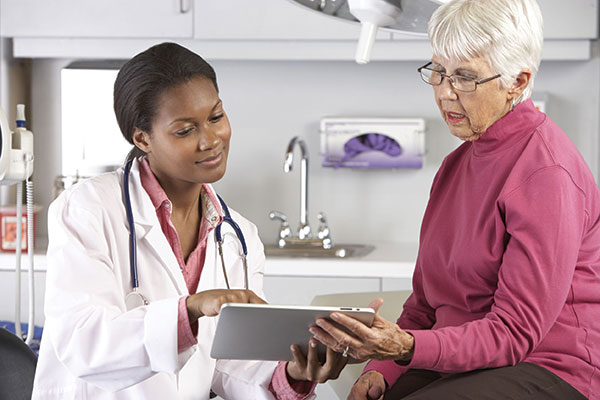Diagnosis: CLL
Practical Tips for Coping with Chronic Lymphocytic Leukemia
A diagnosis of chronic lymphocytic leukemia, or CLL, can leave you and your loved ones feeling uncertain, anxious, and overwhelmed. There are important treatment decisions to make, emotional concerns to manage, and insurance and financial paperwork to organize, among other practical concerns.
It is helpful to keep in mind that there are many sources of information and support for people coping with CLL. By learning about this diagnosis and its treatment options, communicating with your healthcare team, and surrounding yourself with a support network, you will be better able to manage your CLL and experience a better quality of life.
Understanding Your Diagnosis and Treatment Plan
Chronic lymphocytic leukemia occurs when a type of white blood cells, called lymphocytes, begin to change and grow uncontrollably. These abnormal cells crowd out other types of blood cells in the bone marrow that are responsible for making blood clot. As a result, people with CLL may experience anemia, are more prone to developing infections, and tend to bruise or bleed easily.
There are a wide range of treatments for CLL, including chemotherapy, radiation, targeted therapies, and transplantation. People with early-stage CLL may have no symptoms and only need close monitoring by their doctors. If treatment is necessary, ask your healthcare team to recommend reliable publications and websites to learn more. Knowing what to expect can help you feel more in control.
It is helpful to keep in mind that there are many sources of information and support for people coping with CLL.
The Importance of Communicating with Your Healthcare Team
Because CLL is a complex condition with complex treatment options, good communication between you and your healthcare team is key. Your oncologist, nurses, and other members of your healthcare team work together to treat your CLL. Since medical appointments are the main time you will interact with your team, being as prepared as possible for these visits is important. It will help ensure that you understand your diagnosis and treatment, get answers to your questions, and feel more satisfied with your overall care.
Finding Resources
While CLL can present many challenges, keep in mind that you do not need to cope with this diagnosis on your own. Your friends and family are important sources of strength and support. There are also many local and national support services available to assist you.
• Financial assistance There are many organizations that provide help with medical billing, insurance coverage, and reimbursement issues. There is also financial assistance available to help people who cannot afford the cost of their medications. Good places to start your research are the websites of A Helping Hand (cancercare.org/helpinghand) and the Medicine Assistance Tool (MedicineAssistanceTool.org).
• Benefits and entitlements Local and county government agencies can give you information on Social Security, state disability, Medicaid, income maintenance, the Low Income Heating Energy Assistance Program (LIHEAP), and the Supplemental Nutrition Assistance Program (SNAP). Check your local phone directory for listings.
• Housing and lodging The Hope Lodge of the American Cancer Society, the National Association of Hospital Hospitality Houses, and other organizations provide temporary lodging for families of a person who needs to travel far from their home for treatment. Joe’s House is a nonprofit organization that offers an online database with lodging information near cancer treatment centers across the U.S. To learn more, visit joeshouse.org.
Getting Emotional Support
Adjusting to and finding ways to cope with a CLL diagnosis is an important part of healing, along with treatment. There are many organizations, such as CancerCare (cancercare.org), that provide support services to help people affected by cancer. Individual counseling is available to help you learn ways to cope with the emotions and challenges raised by your diagnosis. Support groups can connect you with other survivors in a safe, supportive environment. Cancer affects the whole person and their loved ones, so it’s important to create a support network as part of managing your care.
CancerCare offers free face-to-face, telephone, and online support groups led by professional oncology social workers. To learn more, call (800) 813-4673 or visit CancerCare.org.
Reprinted with permission from CancerCare.org.
This article was published in Coping® with Cancer magazine, March/April 2020.


